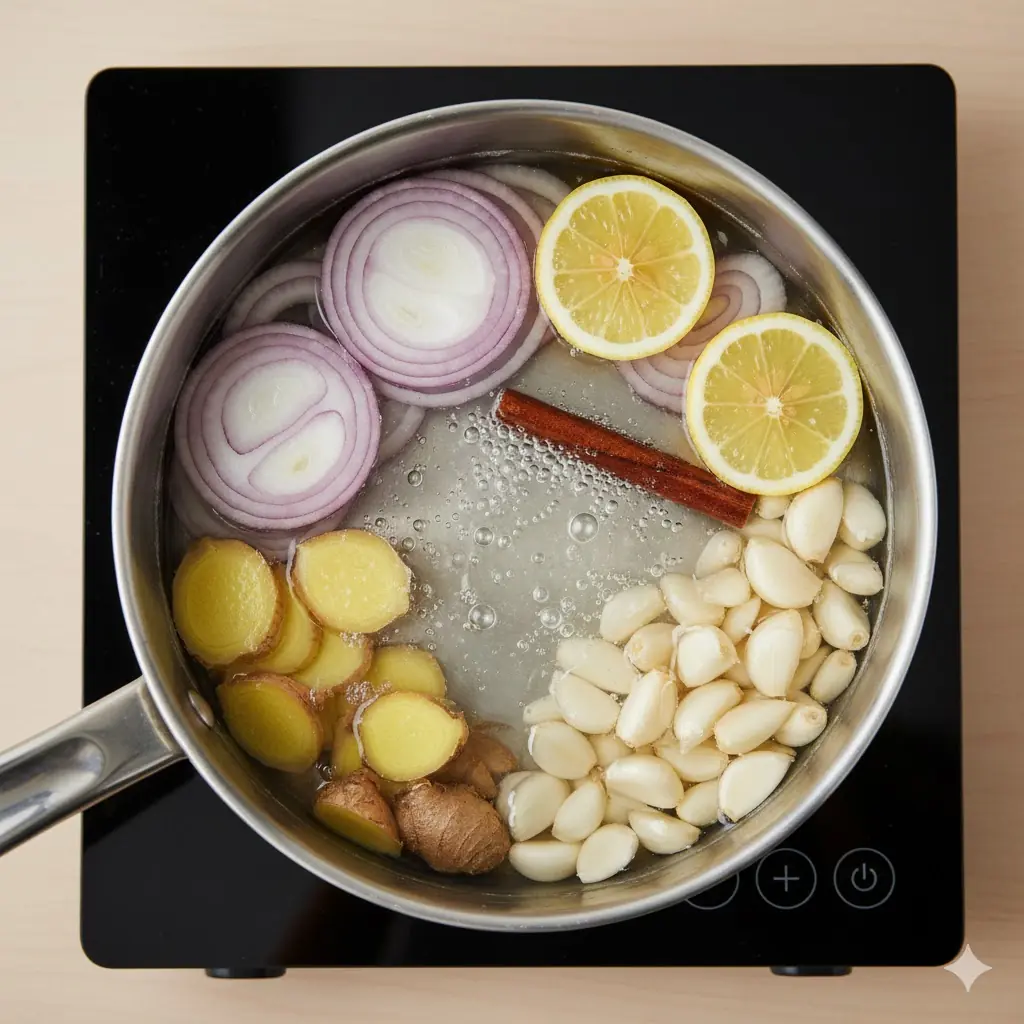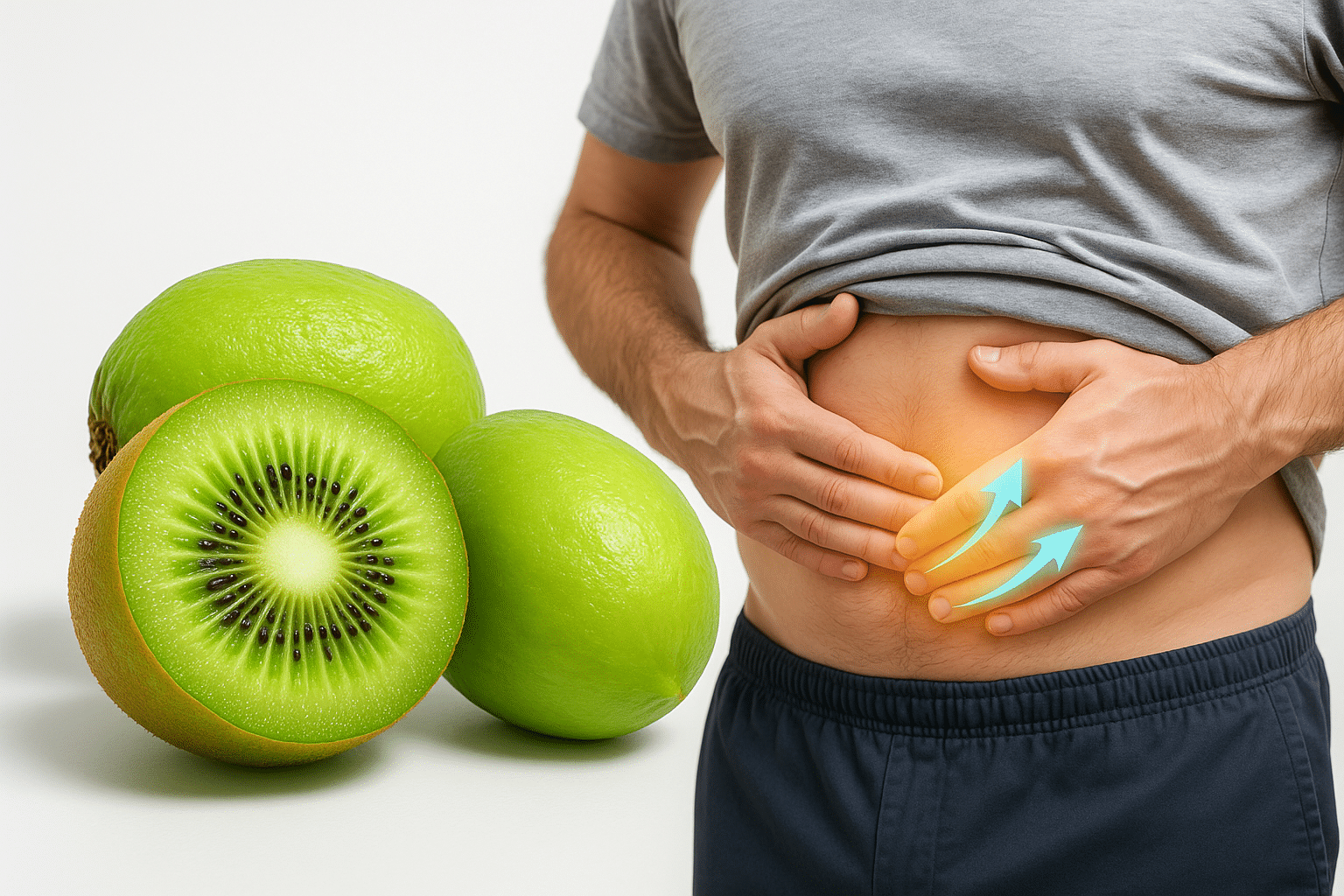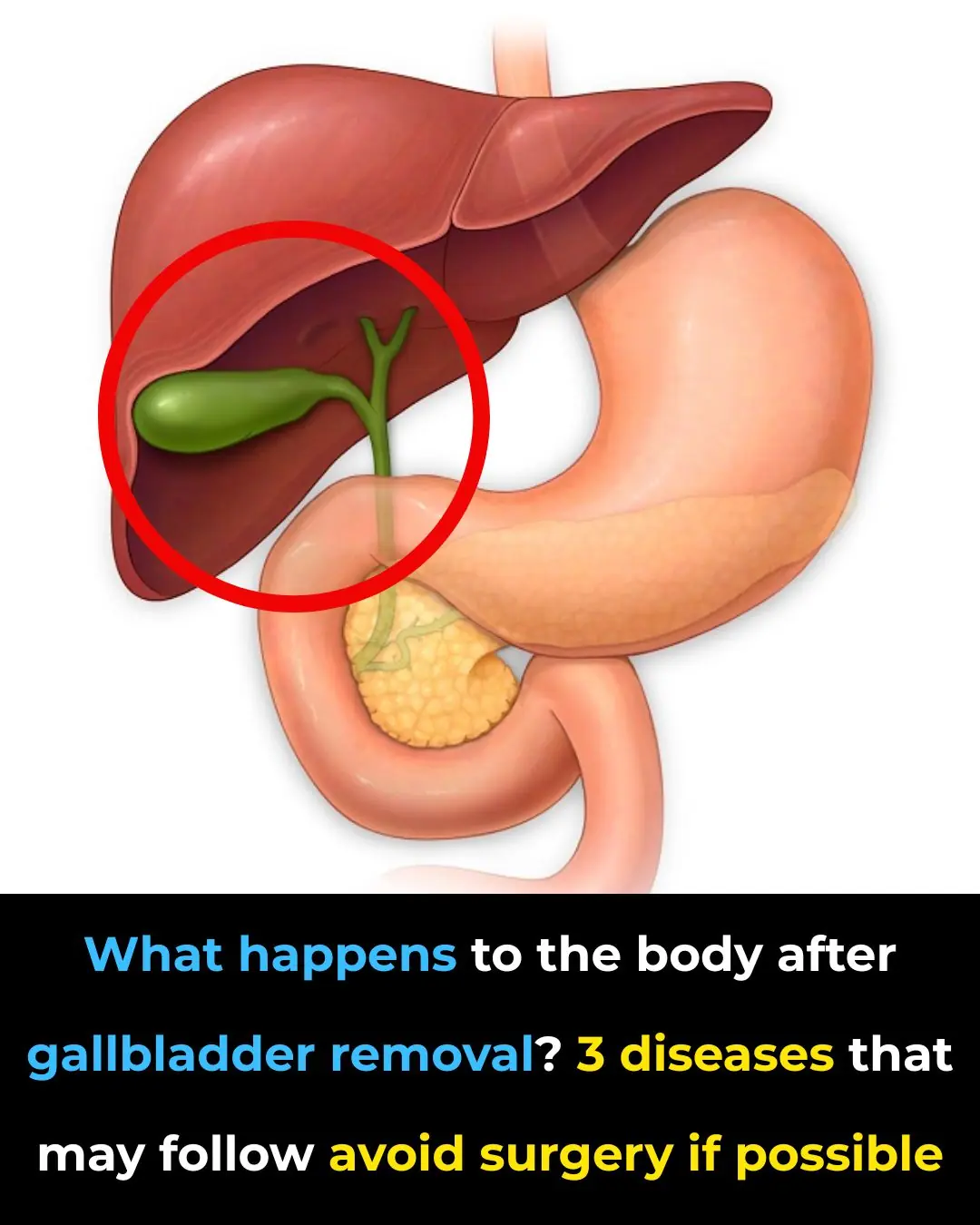
The simple, natural method to relieve constipation and gas fast (no laxatives needed)

Are you tired of that heavy, bloated, stuck feeling that seems to take over your entire day? Maybe you’ve had moments where you wanted to go out, travel, or simply enjoy a meal with friends, but your bowels refused to cooperate. Perhaps you’ve already experimented with every remedy—fiber powders, laxatives, herbal teas—yet nothing seems to truly fix the problem. If any of this sounds familiar, you’re far from alone. In fact, more than 30% of people struggle with constipation and gas on a regular basis, often blaming themselves or assuming their body is simply “broken.”
Here’s the truth: in the vast majority of cases, constipation has clear, simple, and completely treatable causes. Once you understand what’s really going on in your gut, you can apply practical solutions that bring relief surprisingly fast—sometimes within just 24 to 48 hours. Keep reading to discover eight science-supported strategies to get your bowels moving, reduce gas, and finally regain your comfort and confidence. You may be surprised by how small changes can make a massive difference.
(Inspired by insights from Dr. Andre Wambier.)
Key Takeaways
-
Constipation is rarely due to a flaw in your body—most cases are caused by everyday lifestyle patterns.
-
Small changes in posture, hydration, food choices, and movement can dramatically improve digestion.
-
Effective solutions involve how you eat, what you eat, how you drink, and even how you sit.
1. The Forgotten Position: The Way You Sit on the Toilet Really Matters
Believe it or not, your toilet posture can be one of the biggest contributors to constipation. Modern toilets place your body at a 90-degree angle, which keeps the puborectalis muscle partially tightened. This tightness bends the rectal passage, almost like pressing your foot on a garden hose—slowing everything down and making it harder to fully evacuate.
The fix is surprisingly simple: elevate your feet. Place a small stool, box, or bench (about 15–20 cm high) under your feet while sitting. This raises your knees above hip level, gently straightens the rectum, and dramatically reduces straining. Research shows that this one change can shorten bathroom time and increase overall comfort.
Try this for a few days—you may be shocked at how much easier and more complete your bowel movements become.
2. The Overlooked Tea: Sweet Fennel for a Happier, Calmer Gut
Many people reach for herbal teas when constipated, but common options like senna can irritate the intestines if used frequently. Sweet fennel (also known as fennel seed or anise) is a gentler and often more effective alternative.
Fennel contains anethole, a natural compound that:
-
relaxes gastrointestinal muscles,
-
reduces gas buildup,
-
eases cramping,
-
and stimulates healthy gut movement.
To make a soothing digestive tea:
-
steep 1 tablespoon of fennel seeds in 250 ml of hot water,
-
let it rest for 10 minutes,
-
sip 2–3 times daily.
This tea can noticeably decrease bloating and bring more comfort without harsh side effects. (Adults only—pregnant women and children should consult a doctor first.)
3. Morning Boost: Warm Water on an Empty Stomach
This simple habit is a classic for a reason—it works for countless people. When you wake up, before eating, drink 500–700 ml (2–3 cups) of warm water. Drinking this amount while your stomach is empty activates a natural reflex in your digestive system, encouraging peristalsis: the coordinated muscle movement that pushes stool through your intestines.
Many people report that within 20–30 minutes, the urge to go appears naturally, helping build a reliable morning routine. It’s a gentle way to “wake up” your digestive tract each day.
4. The Kiwi Secret: Your New Daily Digestive Booster
You may have heard that papaya helps with digestion, but kiwi is an unsung hero—and research backs it up. Eating two kiwis per day can significantly improve constipation, sometimes even outperforming popular remedies like plums or papaya.
Kiwi contains:
-
actinidin, an enzyme that speeds up intestinal transit,
-
a balanced mix of soluble and insoluble fiber,
-
high water content,
-
powerful antioxidants and vitamin C.
Try eating two kiwis in the morning or as a snack. Most people notice a more regular, smoother bowel pattern within 3–4 days.
5. Prunes: Highly Effective When Used Correctly
Prunes have earned their reputation as a natural laxative, but many people don’t prepare them in the most effective way. Prunes work because they contain fiber and sorbitol, a natural sugar alcohol that draws water into the intestines, softening stools.
For maximum benefit:
-
Soak 4–5 prunes in a glass of water overnight.
-
In the morning, warm the water gently (not boiling).
-
Eat the prunes and drink the infused water.
This combination works like a gentle but powerful reset, especially if you haven’t gone for several days. Start with four prunes—adjust if needed, since too many may cause cramps.
6. Friendly Gut Bacteria: Strengthening Your Microbiome
Your gut is home to trillions of bacteria that play a major role in healthy digestion. When good bacteria are outnumbered—often due to stress, alcohol, sugar, antibiotics, or low-fiber diets—your system slows down, and gas or bloating worsens.
You can support your microbiome by adding:
-
Probiotic foods: yogurt, kefir, kombucha, miso, sauerkraut
-
Prebiotic foods (nourish good bacteria): garlic, onions, chicory, green bananas, oats, asparagus
A practical daily routine:
-
breakfast with yogurt, oats, sliced bananas, and chia seeds
-
lunch with a large salad including onions or garlic
Over time, your digestion will become more consistent—almost like a finely tuned clock.
7. The Fiber Balance: The Right Types + Enough Water
Fiber is a superstar for relieving constipation, but only when consumed properly. There are two types:
-
Soluble fiber (softens stool): oats, chia seeds, beans, apples with skin
-
Insoluble fiber (adds bulk and speeds movement): leafy greens, bran, raw vegetables, seeds
Aim for 25–30 grams of fiber daily. A simple example:
-
oats & fruit at breakfast (10 g)
-
salad + beans at lunch (10 g)
-
veggies and whole grains at dinner (5+ g)
IMPORTANT: Fiber without water becomes like cement in your intestines. Always increase water intake as you increase fiber—otherwise constipation can actually worsen.
8. The Unstoppable Duo: Water and Movement
If you remember only two things from this article, let them be water and movement.
Your stool is about 75% water. If you don’t drink enough, your colon extracts water from the stool, making it dry, hard, and difficult to pass.
Drink 30–35 ml per kilogram of body weight per day. For a 70-kg person, that’s 2.1–2.4 liters.
Easy routine:
-
2–3 warm glasses upon waking
-
1 glass before meals
-
small sips throughout the day
Pair hydration with movement:
-
30 minutes of brisk walking daily
-
a few sets of squats
-
gentle core twists and stretches
These activities stimulate your gut muscles and encourage healthy movement. Many people see improvements within days.
When Nothing Seems to Work
Sometimes constipation has medical causes unrelated to lifestyle, such as:
-
hypothyroidism,
-
IBS,
-
certain medications (antidepressants, iron supplements, blood pressure meds),
-
structural issues in the intestines.
Seek medical evaluation if you notice:
-
blood in stool,
-
sudden constipation after age 50,
-
unexplained weight loss,
-
or the need for frequent laxative use.
Conclusion: It’s Time to Unlock Your Gut
Imagine waking up, enjoying your morning, and going to the bathroom comfortably and reliably—without stress, pressure, or discomfort. Imagine being able to travel, socialize, and enjoy your life without worrying about bloating or gas.
For most people, constipation is both understandable and fixable. With these eight science-backed habits—like adjusting your toilet posture, drinking warm water in the morning, eating kiwis, and staying hydrated—you can dramatically improve your digestive health.
Start with just one or two changes today. Add a new habit each week. You may be amazed at how quickly your body responds once you give it the tools it needs.
News in the same category


A Powerful Mixture for Cleansing Your Liver (2 Ingredients)

Studies Link Soda To Depression, Kidney Damage, Heart Attacks And Brain Damage

The Plant That Kills Cancer Cells, Stops Diabetes And Boosts Your Immune System!

7 powerful vitamins you need for strong, healthy legs

10 signs you’re eating too much sugar

Gallbladder removal: what happens next and 3 risks to watch for

10 Warning Signs Your Kidneys May Be in Danger

The protein sources that build your body vs. the ones that waste your money

Your pancreas could be ‘silently inflamed’ right now and you’d never know until it’s too late

6 Trigger Foods That Cause Agonizing Pain If You Have Neuropathy

The 5 foods that quietly fuel diabetes — and what to avoid to help reverse it

What if you ate 4 eggs a day with the yolks for 30 days

The Plant That Kills Cancer Cells, Stops Diabetes And Boosts Your Immune System!

The Ultimate DIY Clove Skincare Routine

Foods That Are Beneficial For Strengthening Muscles In Old Age

Why Staying Up Past Midnight Can Harm Your Brain

10 shocking signs of fatty liver you must not ignore!

The 5 foods that quietly fuel diabetes — and what to avoid to help reverse it
News Post

First Person Cured of Type 1 Diabetes Using Stem Cell Therapy: A Groundbreaking Medical Achievement

Gray Hair: A Natural Defense Against Cancer, New Study Suggests

The Best Tea to Start Your Morning and After Dinner: A Powerful Blend for Wellness

Why Placing Borax on Wax Paper Under Your Fridge Works: A Full Guide

Young Student's Determination to Support His Education Inspires Viral Act of Kindness

Lavender Oil and Baking Soda: A Natural DIY Air Freshener Backed by Science (Full SEO Article)

MIT Scientists Develop Injectable Gel to Regenerate Damaged Nerves and Restore Sensation

How Attention Shapes Reality: The Neuroscience Behind Focus and Perception

From Fear to Trust: A Dog's Journey of Healing and Love

Cleaning the TV with tissue paper or plain water is a mistake. Use this to clean the dust and not scratch the screen

Bananas can't be eaten in time when bought. Do this so they won't be dark or overripe all week

A Powerful Mixture for Cleansing Your Liver (2 Ingredients)

Studies Link Soda To Depression, Kidney Damage, Heart Attacks And Brain Damage

The Plant That Kills Cancer Cells, Stops Diabetes And Boosts Your Immune System!

Frequent Daytime Naps Linked to Larger Brain Volume and Healthier Aging

7 powerful vitamins you need for strong, healthy legs

Study Reveals: Parents of Sons Experience Sharper Cognitive Aging

10 signs you’re eating too much sugar

Gallbladder removal: what happens next and 3 risks to watch for
